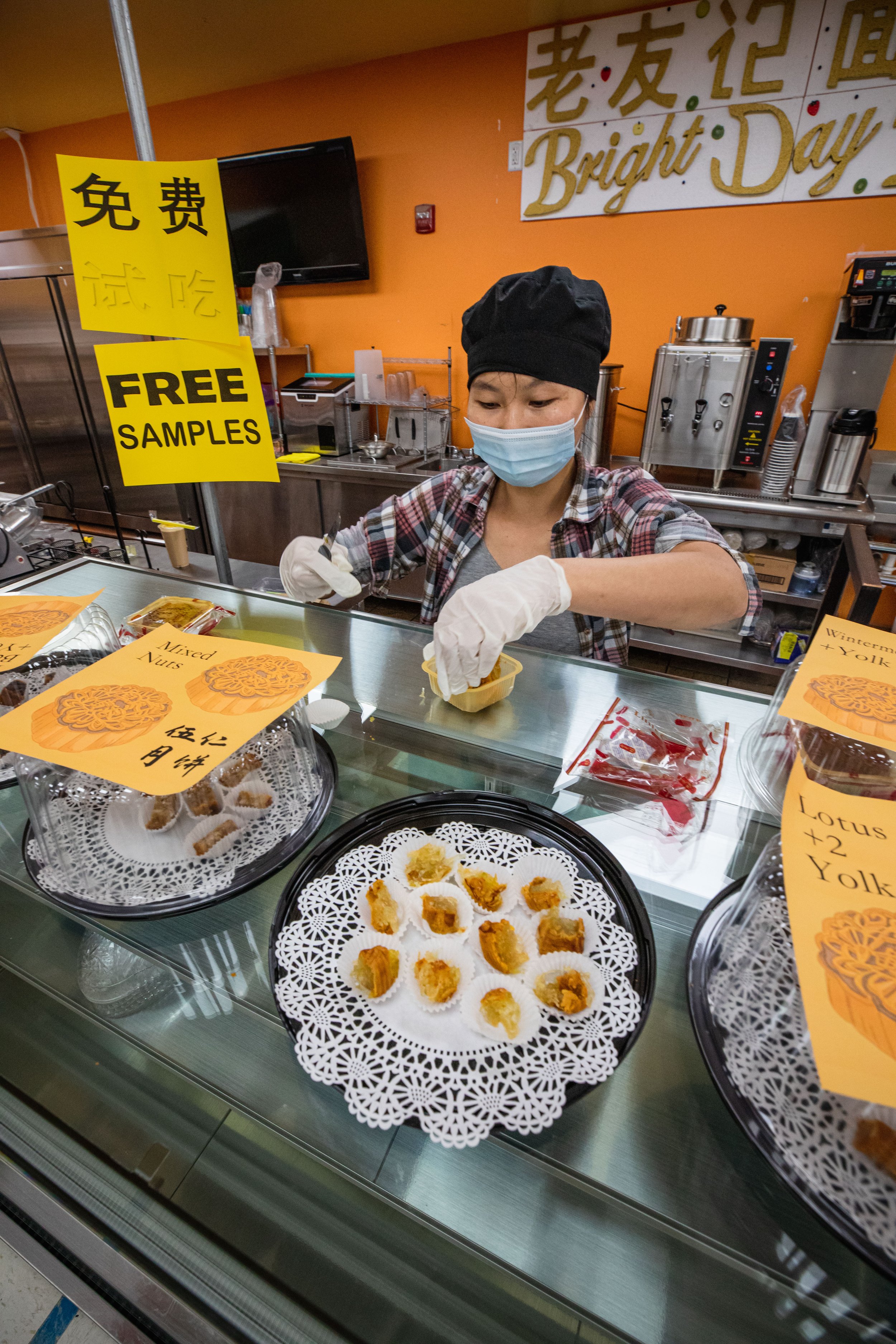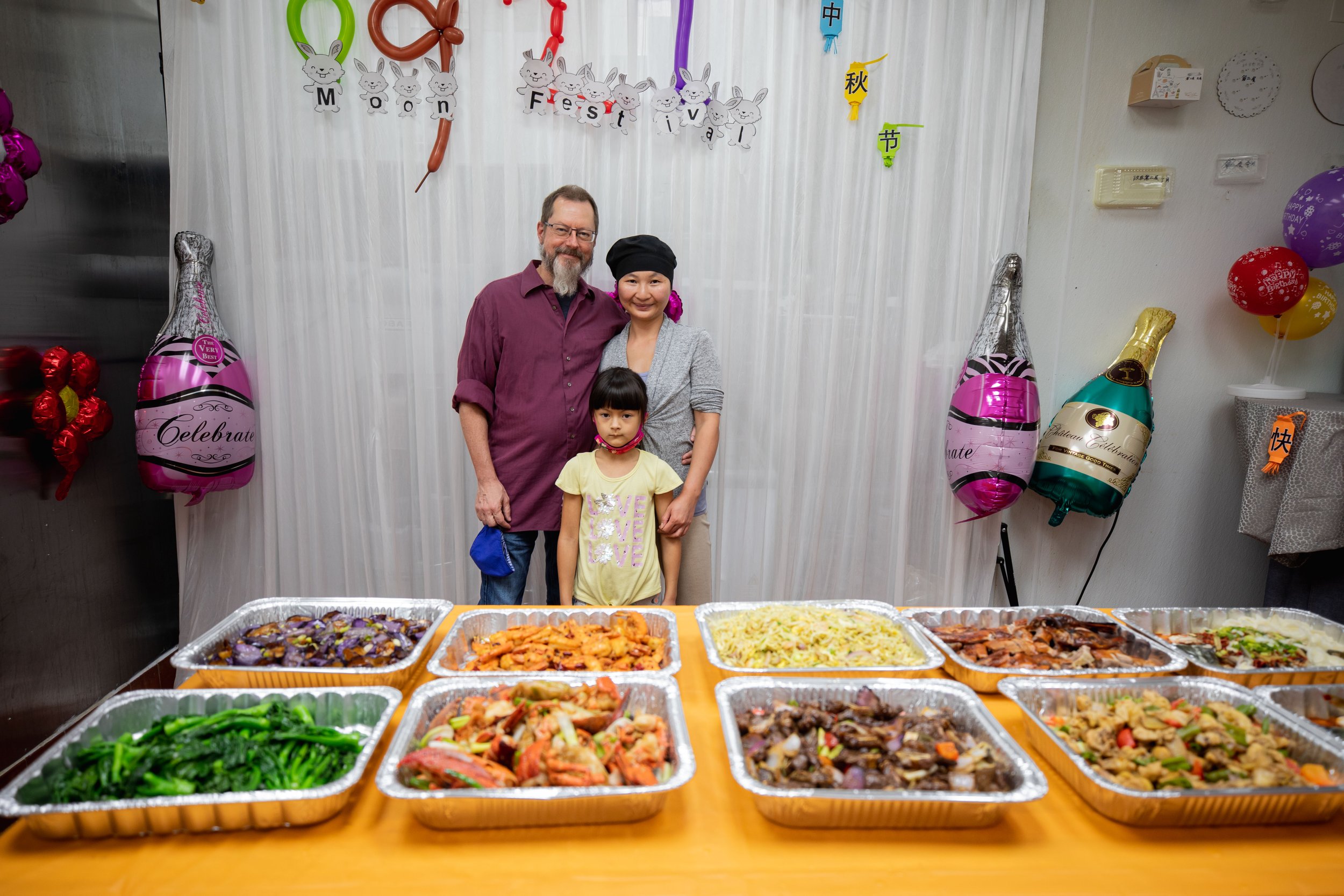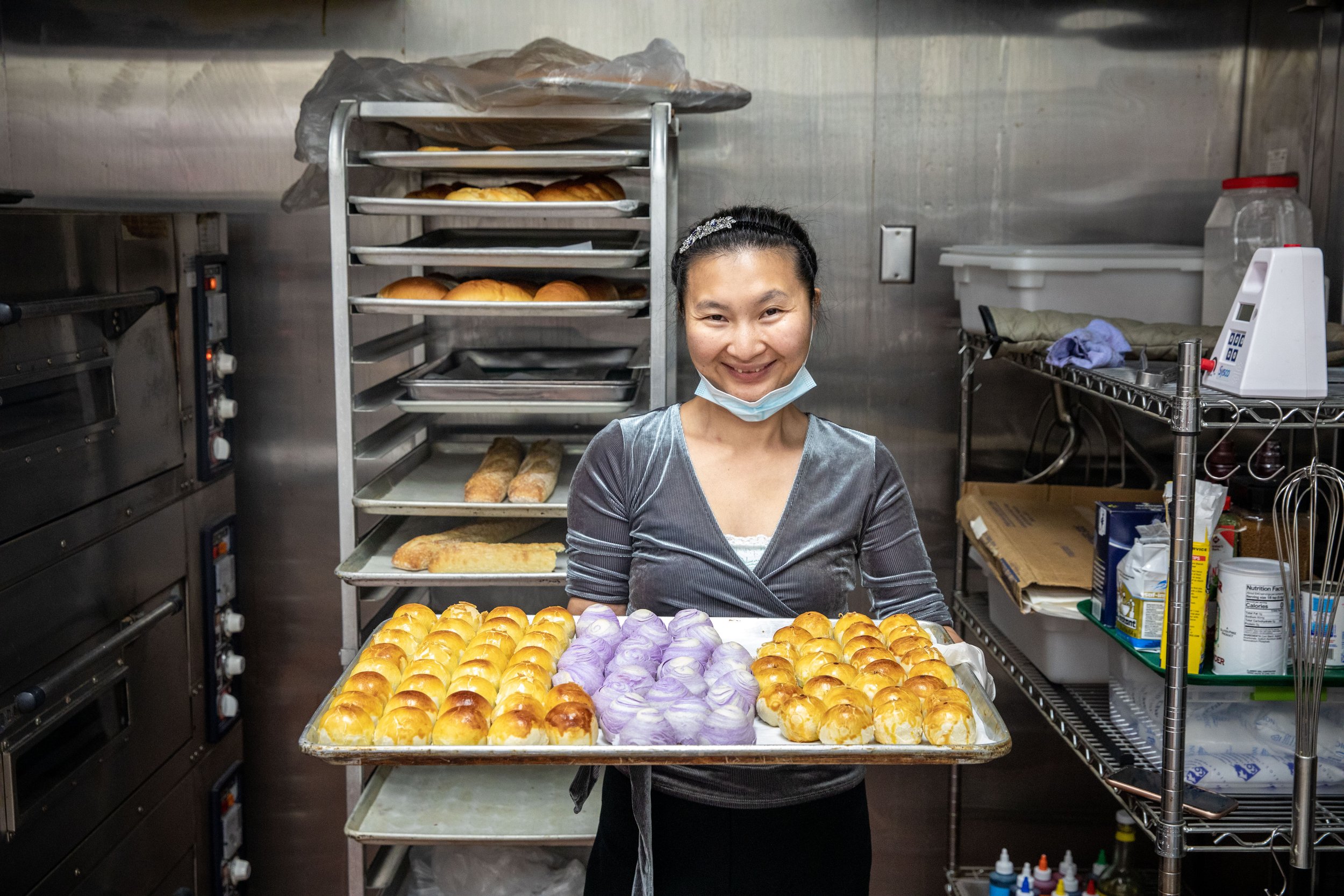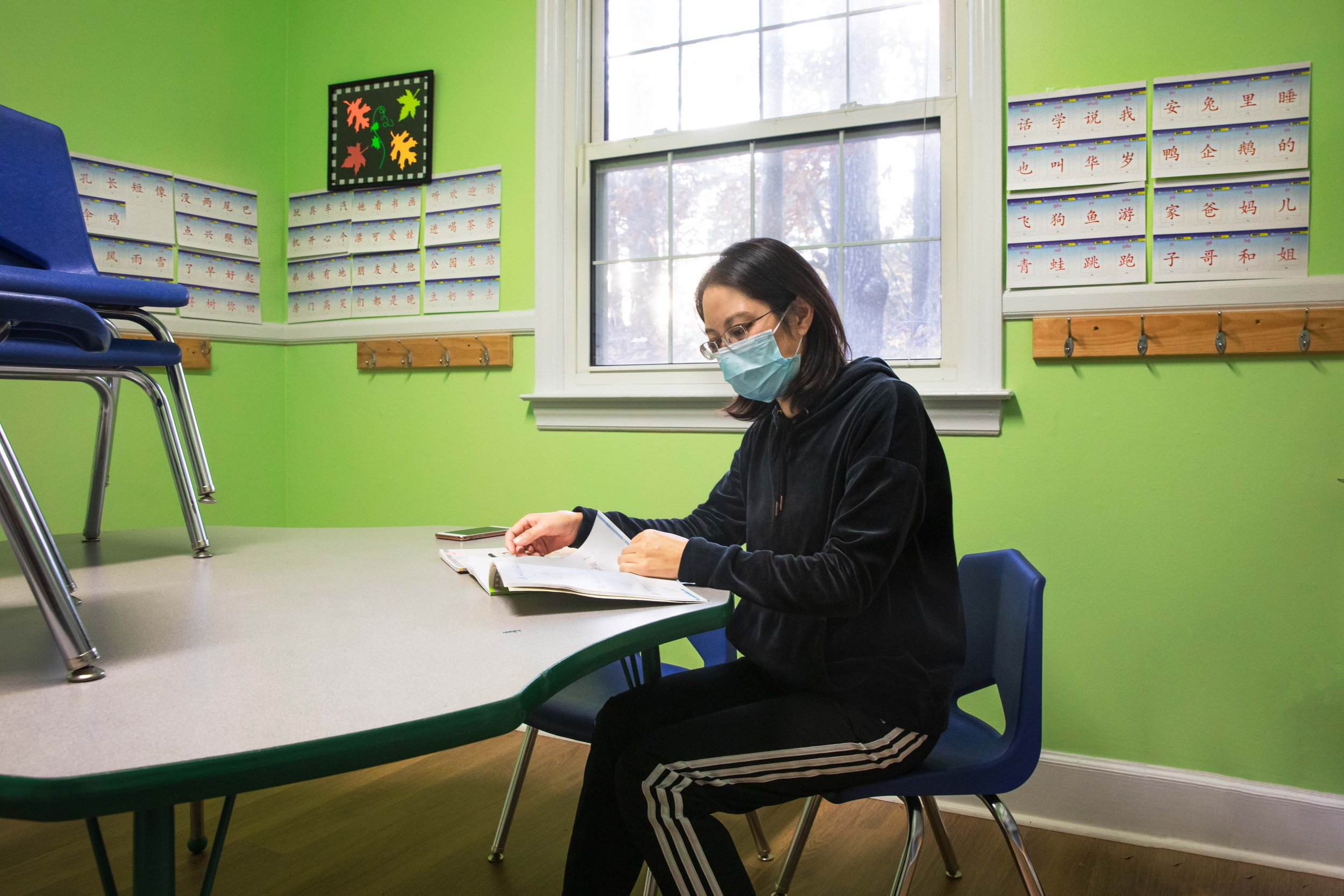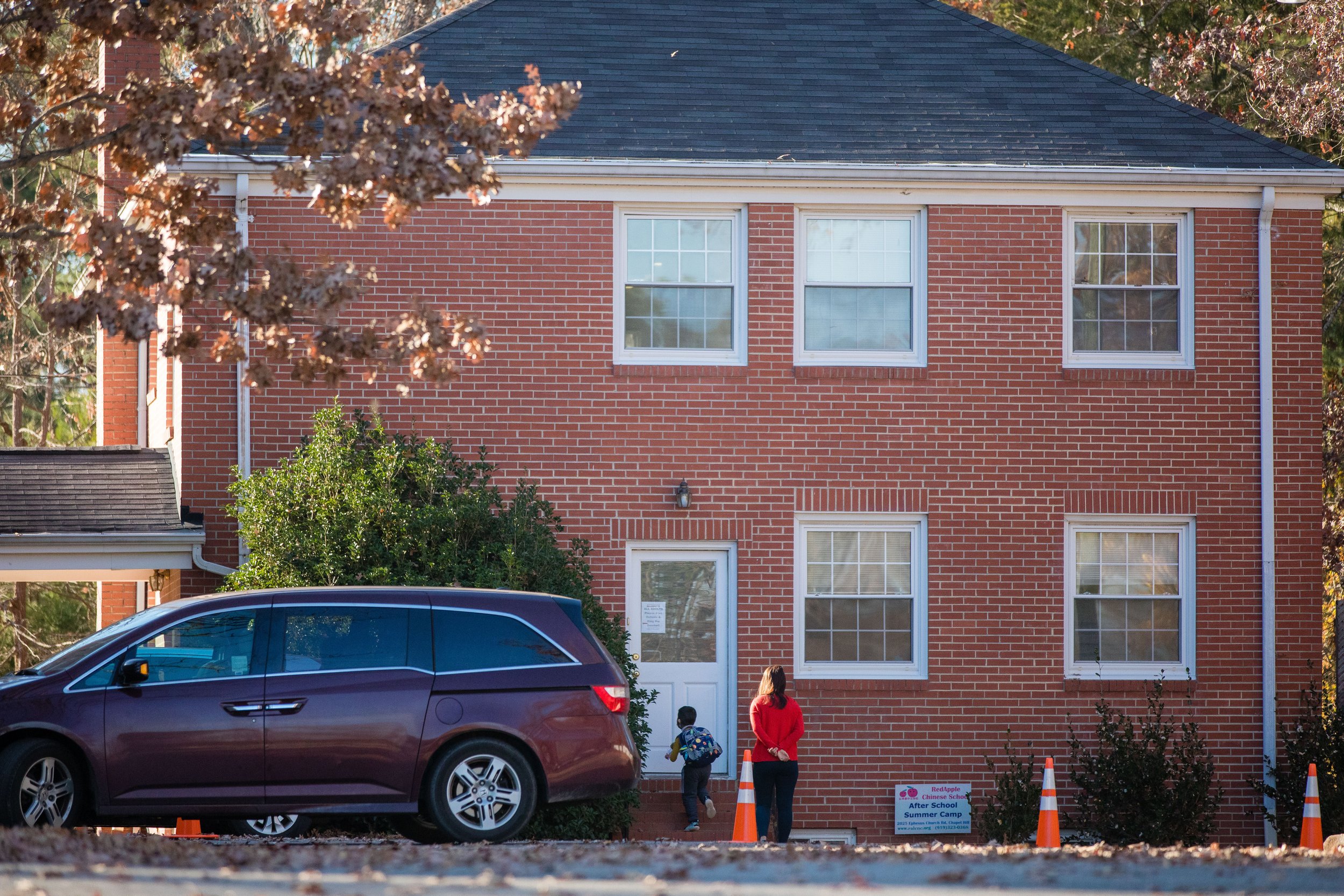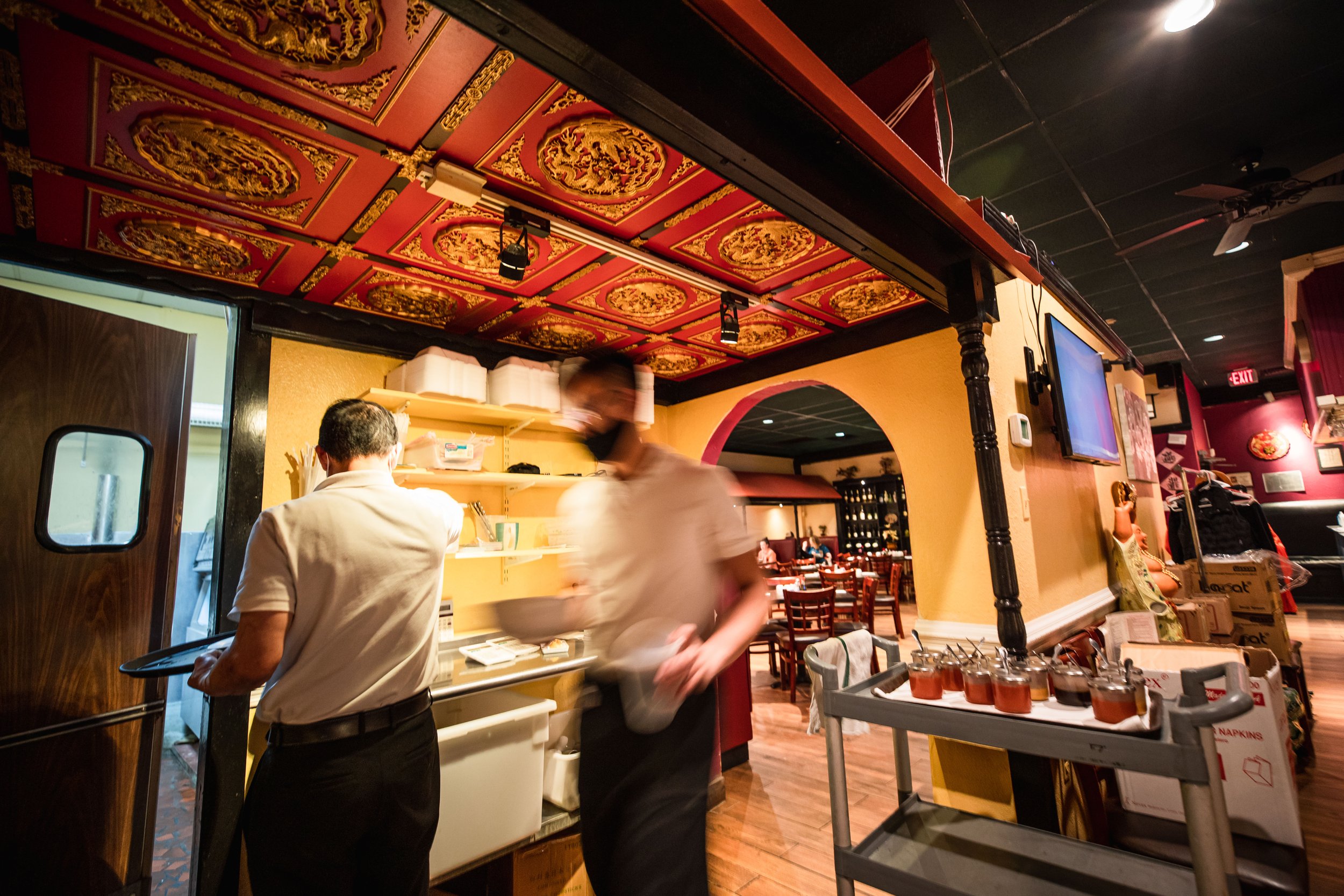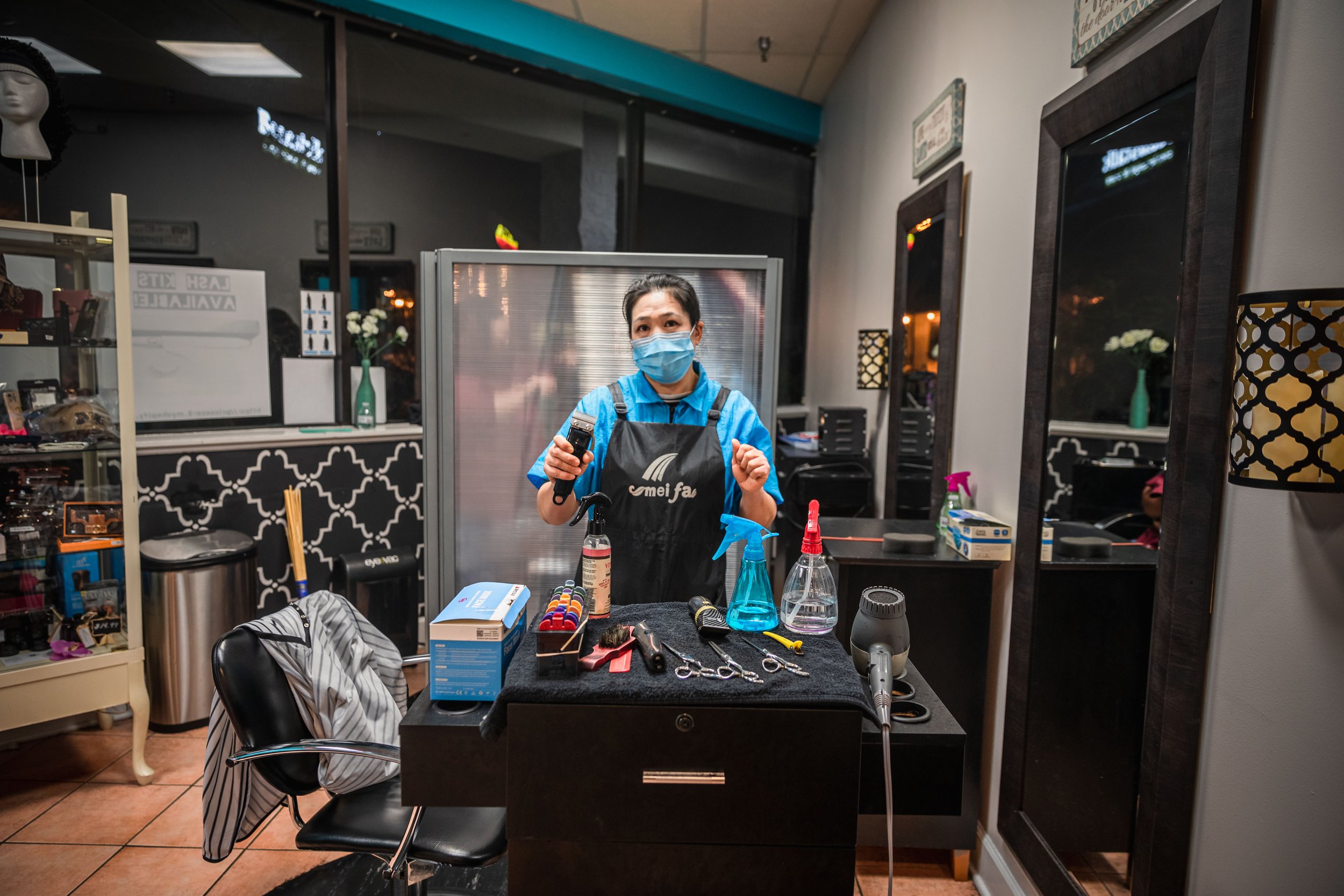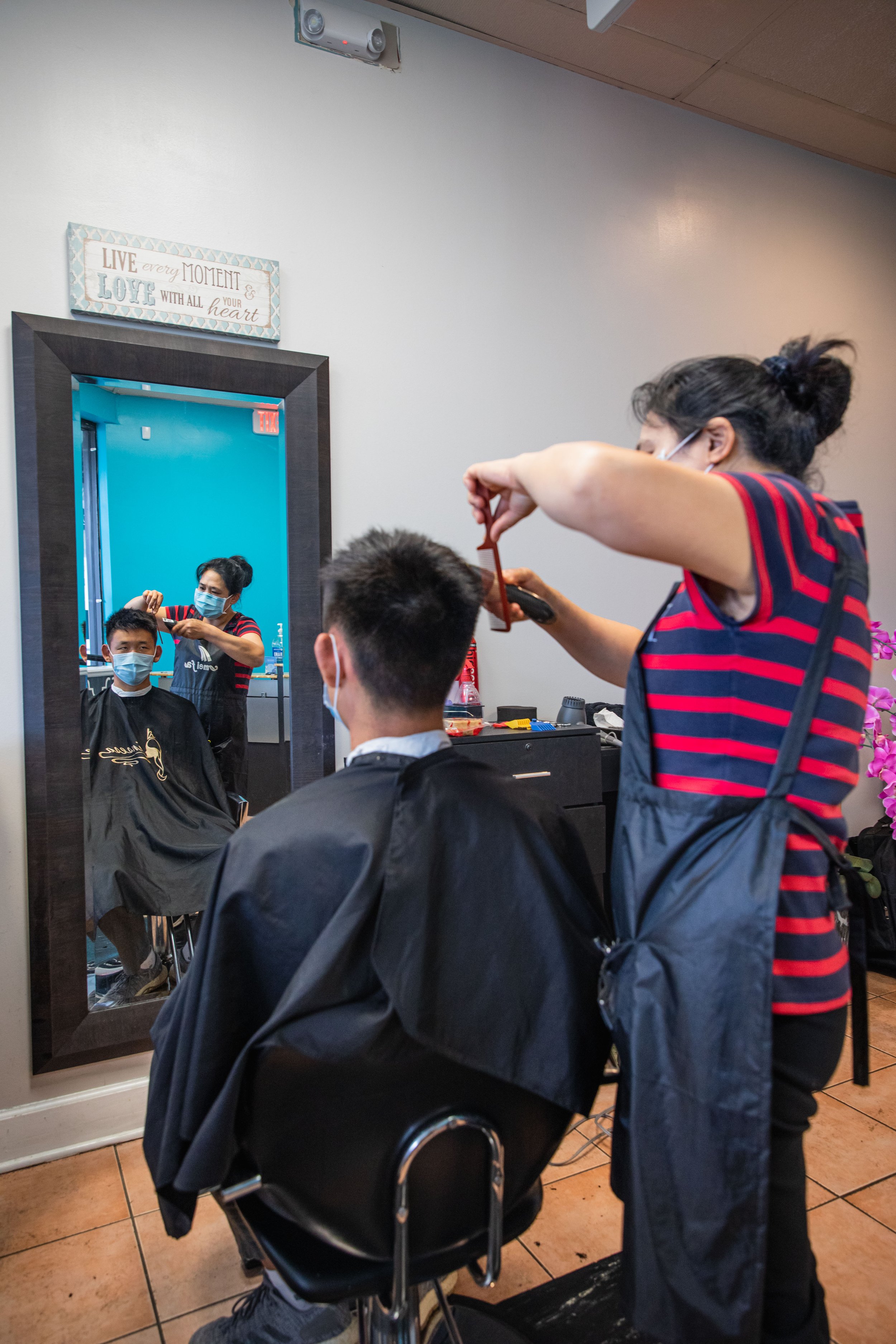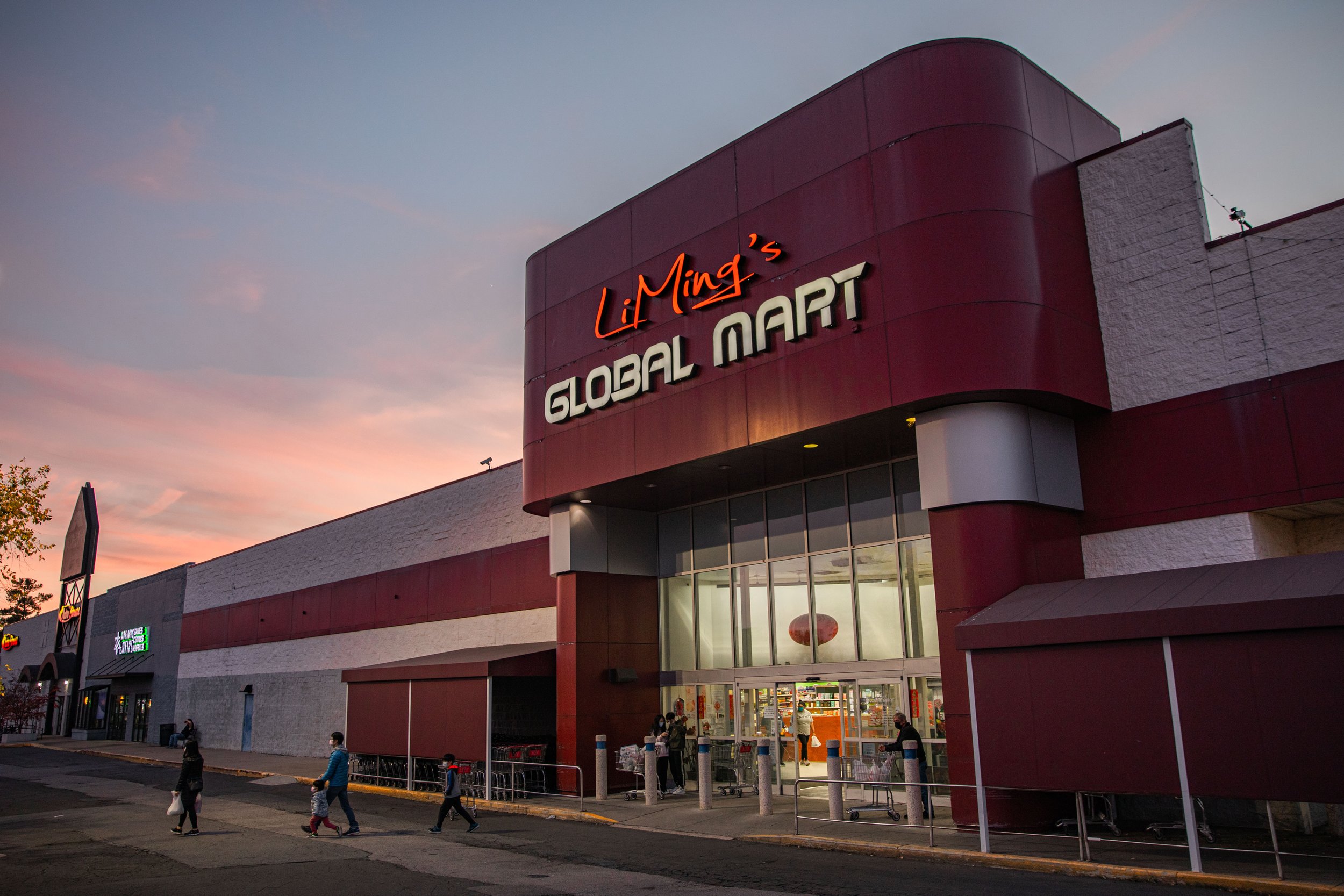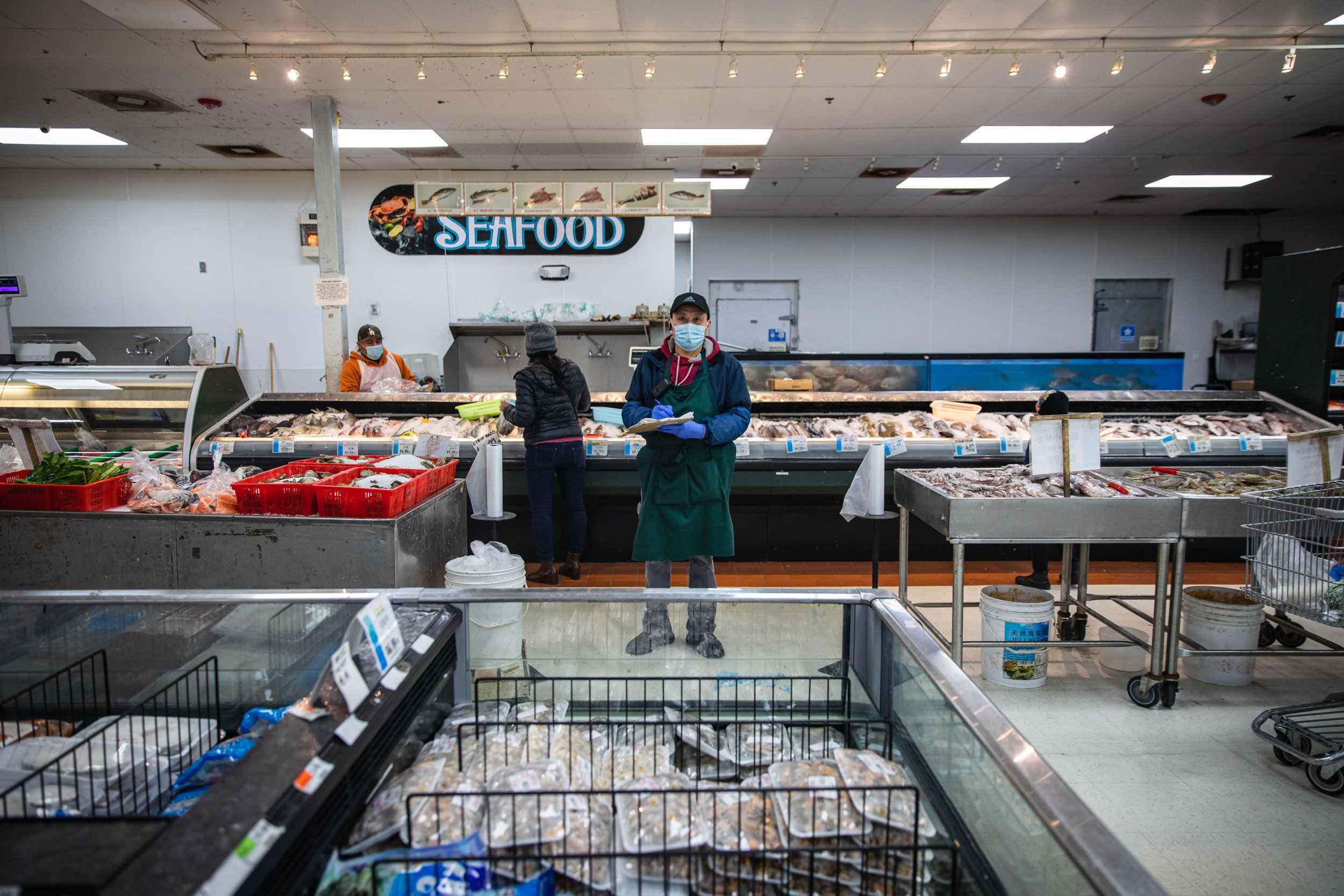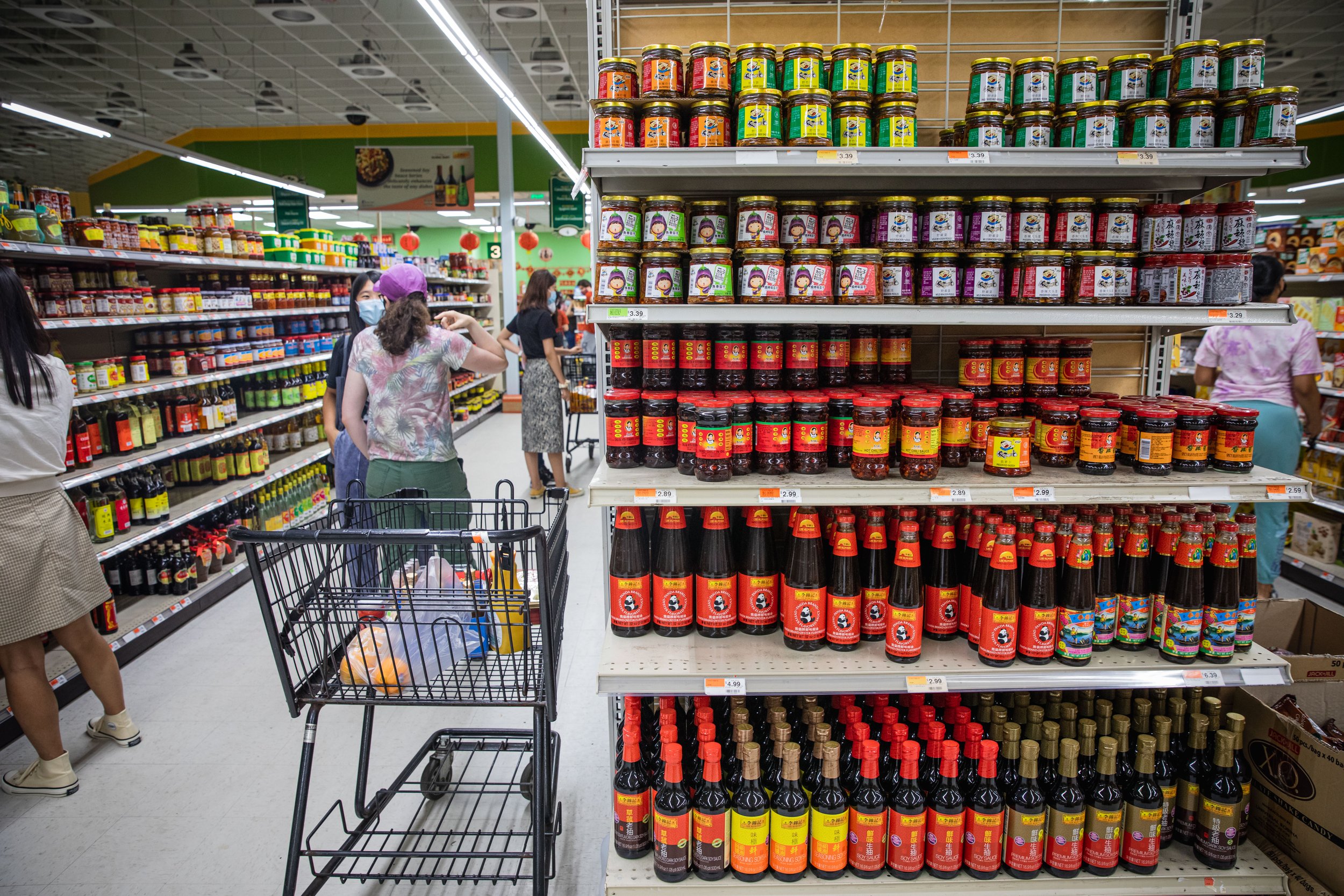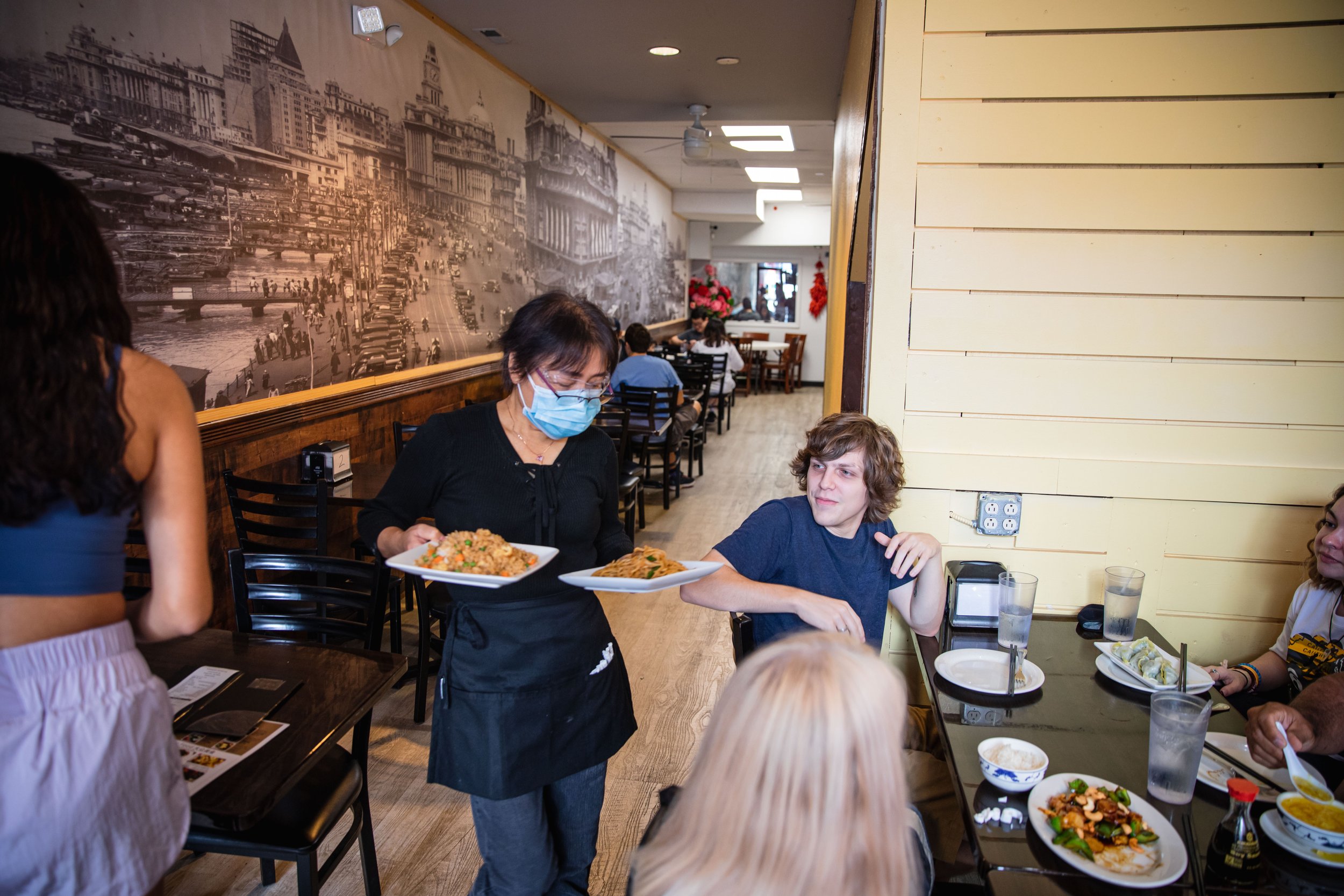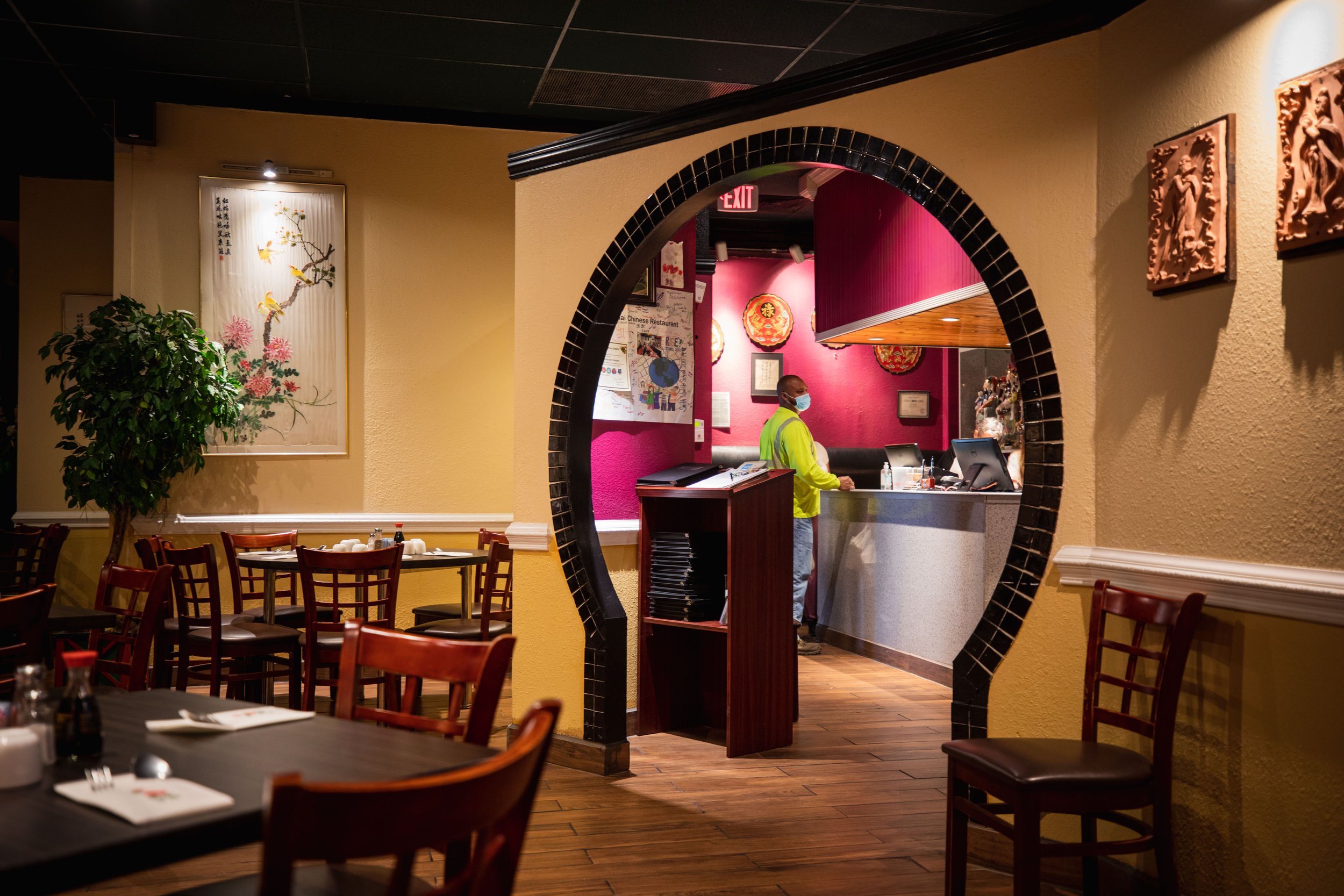Durham est. 2021

August 9th, 2021 was my first day as a college student in the United States. Everything in Durham was so different from my home in China: people spoke different languages, presented varying skin tones and practiced unfamiliar cultural norms. As I tried to find my place in this new community, I wondered how the broader Chinese community settled in Durham — both physically and culturally. The answer came by exploring the Triangle with a camera in my hand and curiosity in my heart.
I ran into Jasmine the first month I came to Durham. I was wandering in a Chinese supermarket when I learned that she was preparing for the opening of her bakery.
Jasmine migrated to the U.S. in her 20s after which she met her husband Anderson at Berkeley, and it was her dream to open a bakery like this. Strongly tied to her Chinese roots, Jasmine’s goal is to combine traditional Chinese-style pastries with American-style baking techniques to produce products that remind people of the original Chinese flavor.
When Jasmine and her family moved to Durham, they observed a vacant stall in the supermarket. She decided to rent it to start her business and signed the lease on her birthday. As a family, the collaborative support on this decision was a gift to realize her wish, as she described herself.
Meanwhile, Mrs. Zhu has been working on knitting the Chinese community in another way. She came to the States for a Master’s Degree in education in 2002 and has lived in North Carolina ever since. As her kid grew up, she felt it was still necessary that her child understood Chinese and kept the culture in their mind.
As a result, she started Red Apple Afterschool Learning Campus, where many Chinese kids come after school to get additional education in Chinese culture, language, and math. At Red Apple, there are currently 70 students: 50 students are Chinese-American, 10 have mixed backgrounds, and 10 are other students interested in Chinese culture.
Chinese people come to Durham and start different types of businesses. You might not notice many of them, but restaurants are always there, marking the existence of Chinese representation. Every year, the restaurant industry receives large amounts of Chinese workers to work in the U.S.
This place is called Shanghai, and they offer good dim sums.
The peony flower was regarded as one of the national flowers in China. They decorate one of the Chinese restaurants in Chapel Hill.
After a busy Saturday, Mr. Shi was doing the final accounting before closing his restaurant. His aunt and uncle moved to North Carolina and started this place five years ago. He is now working part-time at the restaurant to offer help.
People from the Chinese community relocate to Durham as different professions. Some as students, some as professors or scholars, some as restaurant owners, some as supermarket clerks. Many people new to the country wish to pursue their American dream and make this place their new home. Some, however, have not yet reached this and live a very ordinary life.
Family eating in a Chinese restaurant on Franklin Street. The couple settled down in North Carolina as post-doctoral research fellows.
Before coming to North Carolina, Mr. Wang worked as a chef in a restaurant in San Francisco for seven years. He tried to open up his own place, but the plan failed due to insufficient funding. He and two other co-workers moved here last year, working twelve hours a day, six days a week, cooking Chinese food. And at night, they stay at the collective housing unit rented for restaurant employees. Mr. Wang said that cooking food is not his first choice. But for now, he relies on it for a living.
At this Chinese fast-food place in the Chinese supermarket, Tina hides behind her mother as she works. Almost every day after school, Tina will come to this place, wait for her mom, and leave when the supermarket closes at 9pm.
Nevertheless, some migrants have settled down quite well and explored their unique way of living as Chinese Americans.
“Andy’s mom” is a well-known barber among Chinese college students. She came to the U.S. following her husband, who got a job at UNC and became a housewife shortly after she gave birth to Andy. But as an independent Chinese woman, she does not feel like being at home all the time. She started helping the kids in the Chinese community around her to get haircuts, and over the years, it turned out to become a hair salon that specially targets Asian hairstyles. She runs her Business three days a week, and her slots are always fully booked by the Chinese students from Duke and UNC.
Jennie and her husband have been successfully running this Chinese restaurant for three years. They used to be immigrant workers in New York and moved to North Carolina for cheaper living costs. Jennie took some business courses at NC State while she planned to open up this restaurant.
Just beside Andy’s Mom’s barbershop is a huge Asian supermarket called Li Ming’s. This place has been a lot of Chinese families’ go-to supermarket choice in Chapel Hill. It offers a variety of Chinese groceries that ship directly from China.
I met the manager of Li Ming’s the other day. Mr. Dong has been busy all the time resolving all sorts of issues at the supermarket. For such an energetic person, you can hardly tell that he is already in his 60s. Thirty years ago, he came to America as an illegal immigrant, working as a base-level laborer in Chinese restaurants in New York. He persisted in staying. Throughout the years, he opened up his own grocery business, became a grandfather, and ended up being invited to North Carolina to take care of this entire Chinese Business.
I was wandering through the supermarket, and I saw this family having dinner at the table, It was really nice to see that a family of mixed ethnicities and generations can still appreciate Chinese cuisine together. I asked if I could take a picture of them, and they said yes.
I’m also glad to see that Chinese-owned businesses in Durham are not only serving Chinese people, but are also serving the broader community and pushing forward cultural exchanges.
The last pick-up package before the closing of a Chinese restaurant.

